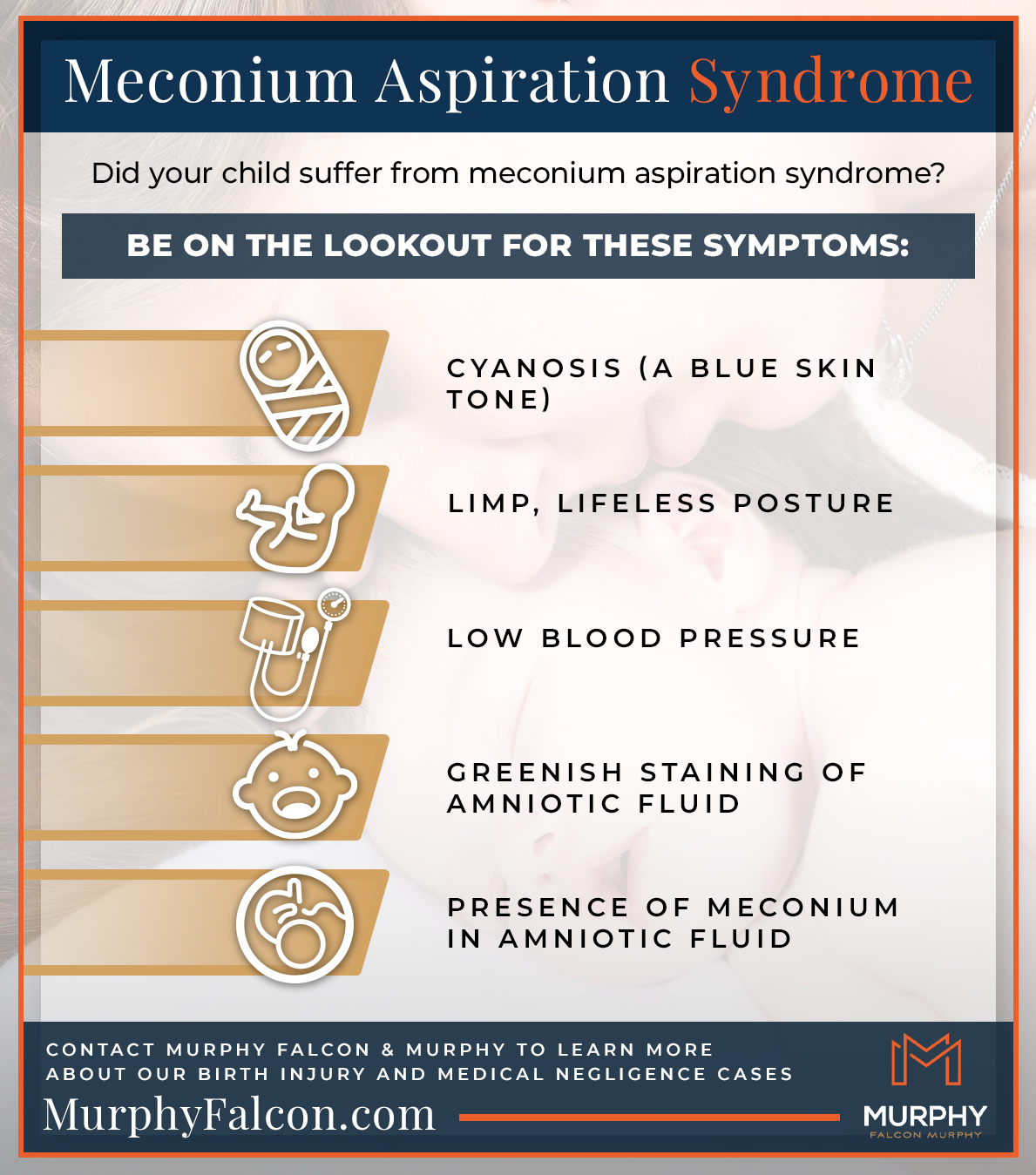Meconium aspiration syndrome (MAS), though not usually indicative of long-term complications, can have serious effects on an infant’s health if not treated immediately. MAS occurs when an infant inhales a mixture of meconium and amniotic fluid into the lungs around the time of the birth. Meconium is the early form of feces that is passed by the baby before it ingests any sort of breast milk or formula.
If a doctor does not monitor your infant for signs of MAS or fails to immediately treat the symptoms, their actions may be considered medical negligence. If your child experienced some form of MAS, it is a good idea to talk to the attorneys at Murphy Falcon & Murphy to learn if you may have a legal case.


Symptoms of Meconium Aspiration Syndrome
The most obvious and common symptom of MAS is respiratory distress. If your infant stops breathing, or is breathing in shallow rapid breaths, their airway may be blocked by meconium. If proper infant monitoring takes place before the delivery, and MAS is treated as soon as possible, recovery rates are quick and injury rates are low. However, if MAS is not noticed quickly and efficiently, there could be serious problems for your child, and could lead to further dangers.
Diagnosis & Treatment
Diagnosis & Treatment of Meconium Aspiration Syndrome
During your delivery and following the child being born, a doctor can order a blood gas test, chest x-ray, or laryngoscope to diagnose MAS. If MAS is present, the doctor may immediately suction the baby’s nose, mouth, and throat after delivery until no meconium is present. Afterwards, the infant may be sent to a special care unit to observe respiratory functions and ensure that they are in stable condition and that their airways are clear. Some of the most common treatments for MAS include:
- Antibiotics to fight infection
- A breathing machine to assist the baby
- A machine that performs lung function for the baby
- Oxygen therapy to balance blood oxygen levels
- A radiant warmer to stabilize the infant’s temperature
As with most illnesses, early diagnosis is the best tool against MAS. Your doctor can monitor infant distress before the delivery to prevent the stress-induced inhalation of meconium, or they may treat the baby immediately if MAS is apparent.
Where to Start? Call Our Baltimore Birth Injury Attorneys.
Fortunately, if properly treated, MAS will generally resolve itself very early in the infant’s life. However, failure on the part of medical staff to diagnose and treat the illness could result in permanent damage and long-lasting injury for your child. If your infant is suffering from the effects of poorly-treated MAS, contact Murphy Falcon & Murphy to speak with our team of dedicated birth injury attorneys. We have helped countless parents through their tough cases, and we will fight hard to ensure you get the best case possible. Contact us using the form on this page or call our office today at 410.951.8744.
